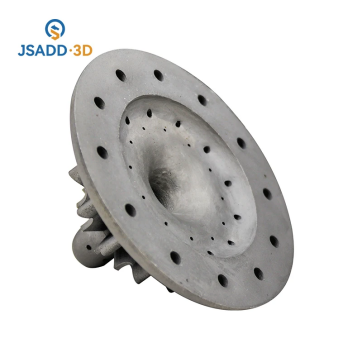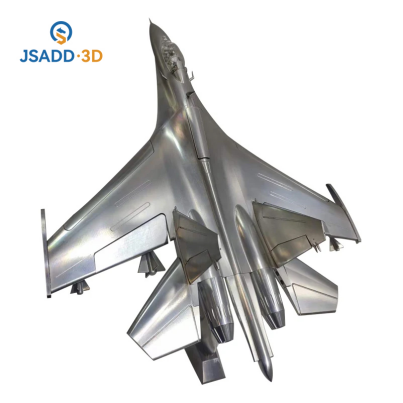Introduction of Metal Printing
Selective Laser Melting (SLM) is a metal additive manufacturing processes that belong to the powder bed fusion 3D printing . This technology uses a laser to scan and selectively fuse (or melt) the metal powder particles, bonding them together and building a part layer-by-layer.
SLM is used in industrial applications to create end-use engineering products.
How does SLM metal 3d printing work?
A thin layer of metal powder is spread over the build platform and a high-power laser scans the cross-section of the component, melting (or fusing) the metal particles together and creating the next layer. The entire area of the model is scanned, so the part is built fully solid. If there is a hollow structure inside, it will need to be supported and the supports cannot be removed.
When the scanning process is complete, the build platform moves downwards by one layer thickness and the recoater spreads another thin layer of metal powder. The process is repeated until the whole part is complete.
Benefits of SLM 3D Printing
1.Can be used to create complex geometries
2.Minimises part weight and total number of parts in an assembly
3.Metal 3D printed parts have excellent physical properties and are available in a wide range of materials
Main Application Fields of SLM Technology
This technology is commonly used for prototyping, production of parts with complex geometries, and end-use parts, as well as for the reduction of metal components in an assembly etc.
Above all, 3D metal printing requires virtually no tooling or use of complex machines, and can reduce production time. As a result of this innovation, designers and manufacturers are now capable of producing highly complex parts with a short turnaround time.
Author: Karianne | Lili Lu | Seazon








